MONDAY - A Brief Intro to George Sherman
Programmed by: Hunter Koch
George Sherman is a name few may readily recall. With over one hundred directorial credits in a four decade career, Sherman represents a prolific anonymity so characteristic of film production in classical Hollywood. His legacy does little to rectify this: these films are rarely screened, and even more rarely promoted with the director’s name. Yet this series does not offer an auteurist resuscitation of a lost master. Rather, these eight films treat George Sherman as a guide through lower-budget Hollywood filmmaking in the 40s and 50s. While perhaps not “true” B-pictures—we might classify some of them as “Lazy As” or programmers—they index a production context where Hollywood excelled. Sherman’s films are short, cheap, efficient. They are also garish, tacky, and exploitative. They are true representatives of run-of-the-mill filmmaking during a period prone to hagiography. After all, film history is more than so-called “masterpieces.” This series offers an alternative set of values for repertory filmgoing. Accepting that we won’t find a lost classic opens one up to an appreciation of historical context and a greater understanding of what kinds of films were regularly made and seen. Hundreds of noirs, adventure pictures, and westerns are all but forgotten by most, yet they make up the bulk of the Hollywood corpus. In them, an idiosyncratic beauty appears in flashes on the screen; rote genre pictures give way to moments of surprising depth and eccentricity. Consider this a brief foray into a deeper consideration of Hollywood through the work of a consummate craftsman.
MONDAY - A Brief Intro to George Sherman
Programmed by: Hunter Koch
George Sherman is a name few may readily recall. With over one hundred directorial credits in a four decade career, Sherman represents a prolific anonymity so characteristic of film production in classical Hollywood. His legacy does little to rectify this: these films are rarely screened, and even more rarely promoted with the director’s name. Yet this series does not offer an auteurist resuscitation of a lost master. Rather, these eight films treat George Sherman as a guide through lower-budget Hollywood filmmaking in the 40s and 50s. While perhaps not “true” B-pictures—we might classify some of them as “Lazy As” or programmers—they index a production context where Hollywood excelled. Sherman’s films are short, cheap, efficient. They are also garish, tacky, and exploitative. They are true representatives of run-of-the-mill filmmaking during a period prone to hagiography. After all, film history is more than so-called “masterpieces.” This series offers an alternative set of values for repertory filmgoing. Accepting that we won’t find a lost classic opens one up to an appreciation of historical context and a greater understanding of what kinds of films were regularly made and seen. Hundreds of noirs, adventure pictures, and westerns are all but forgotten by most, yet they make up the bulk of the Hollywood corpus. In them, an idiosyncratic beauty appears in flashes on the screen; rote genre pictures give way to moments of surprising depth and eccentricity. Consider this a brief foray into a deeper consideration of Hollywood through the work of a consummate craftsman.
Storm Over Lisbon (1944)
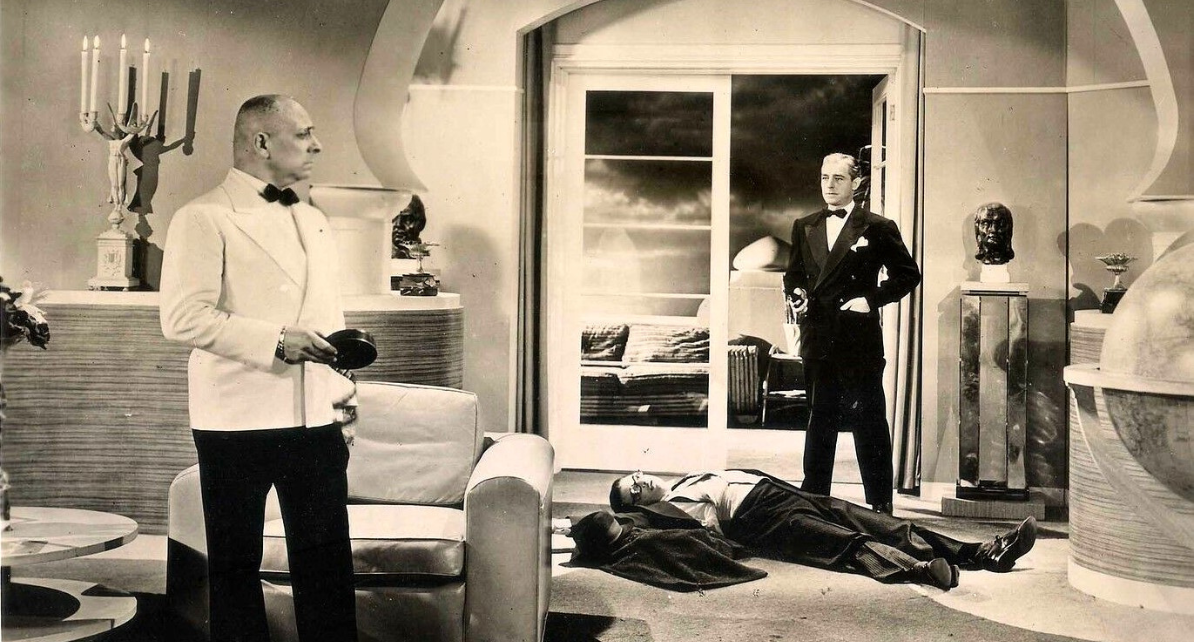
George Sherman · 86m · DCP
A fitting end to Sherman’s seven-year tenure at low-budget studio Republic Pictures, Storm Over Lisbon is a bizarre knock-off of Casablanca. Featuring Republic regular Vera Ralston as dancer Maritza and the ever-striking Erich von Stroheim as the villain Deresco, this admittedly cheap attempt at riding the coattails of more popular fare is elevated by the cinematography of the great film noir stylist John Alton.
Monday, January 8th 7:00PM
Larceny (1948)
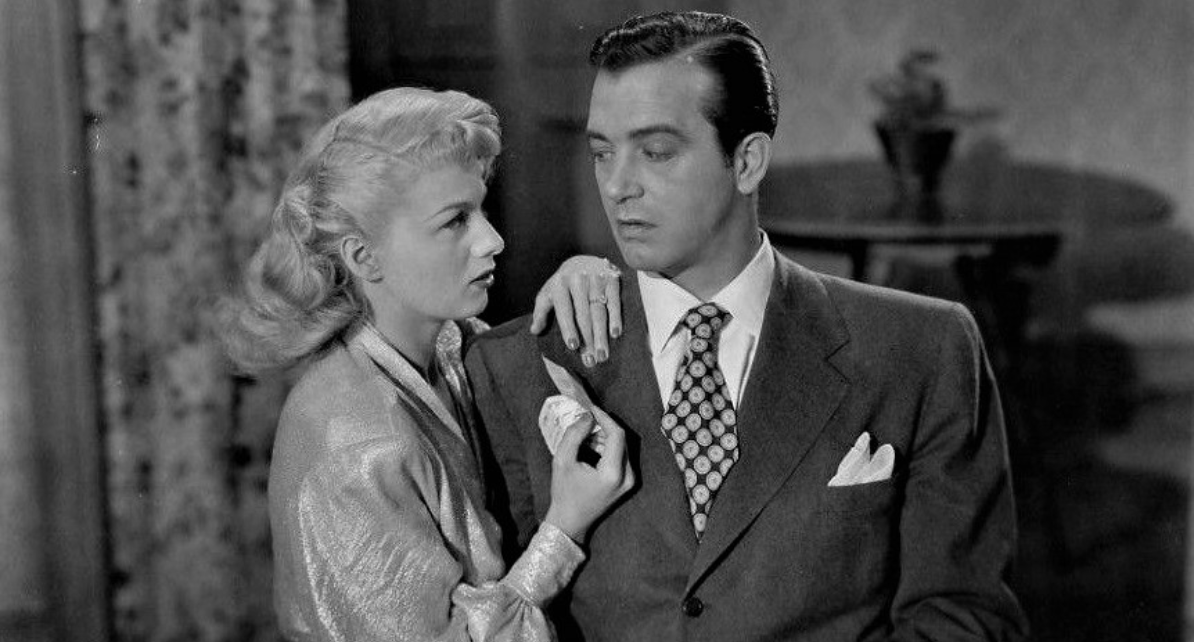
George Sherman · 89m · 35mm
For Universal, as with the rest of the series, Sherman directs John Payne and Dan Duryea as conmen trying to fleece a war widow out of her savings. But things go awry as Payne’s Rick Maxon finds himself falling for the widow. Larceny takes a rather tasteless premise and creates a noir with unexpected commentary on citizenship and war trauma.
Sunday, January 14th 4:00PM
The Sleeping City (1950)
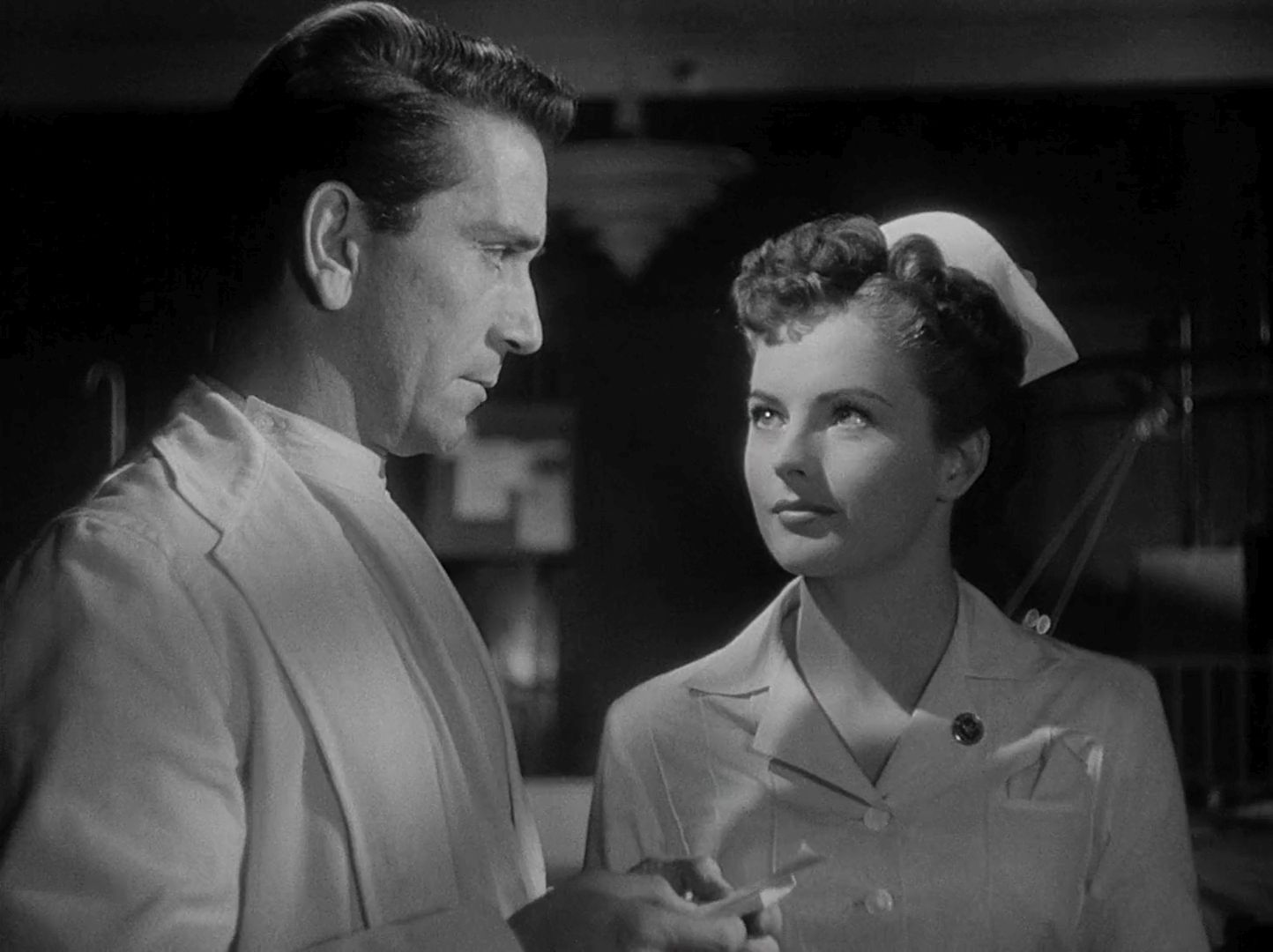
George Sherman · 86m · 35mm
Another noir for Universal, The Sleeping City follows Richard Conte as an undercover detective searching for a cop-killer at New York’s Bellevue Hospital. Following contemporaneous trends in semidocumentary noir, The Sleeping City was filmed on-location at Bellevue. It thus serves as a document not just of filmmaking styles circa 1950, but also of New York and the Bellevue hospital from over seventy-years ago.
Monday, January 22nd 7:00PM
The Golden Horde (1951)
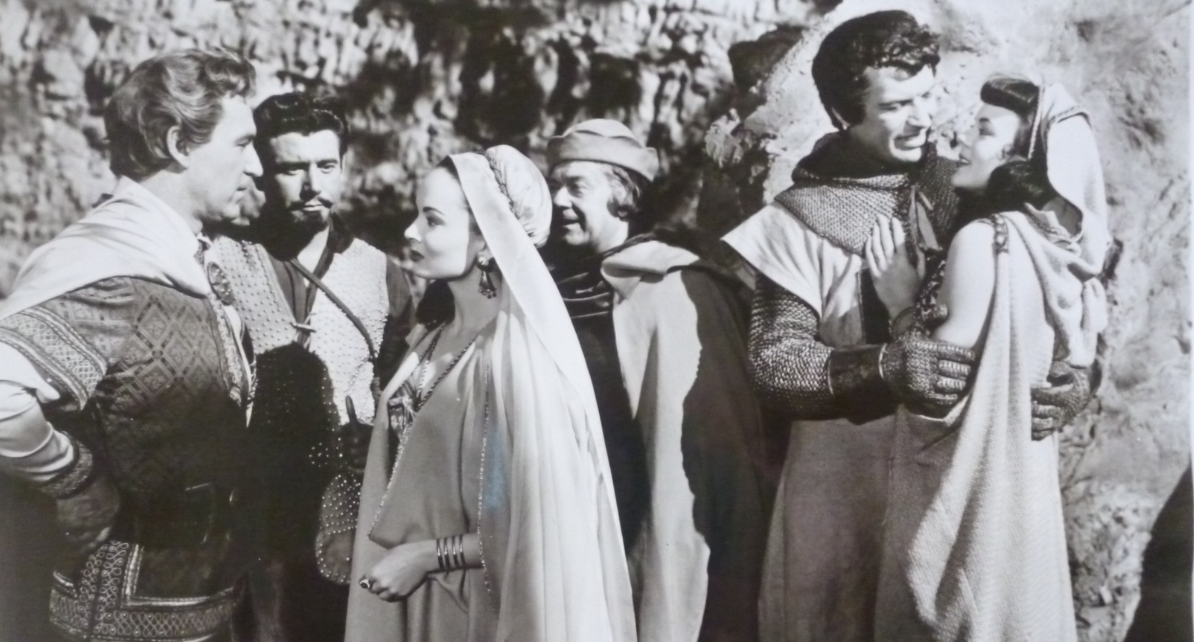
George Sherman · 77m · 35mm
A premise that begs you to see how it materializes. This Universal Technicolor adventure film follows English crusaders as they help defend a central Asian city against the attacks of Genghis Khan in 1220. In some sense, this is pure Hollywood: a carelessly sensationalized historical picture replete with color, violence, and compulsorily-heterosexual romance.
Monday, January 29th 7:00PM
The Raging Tide (1951)
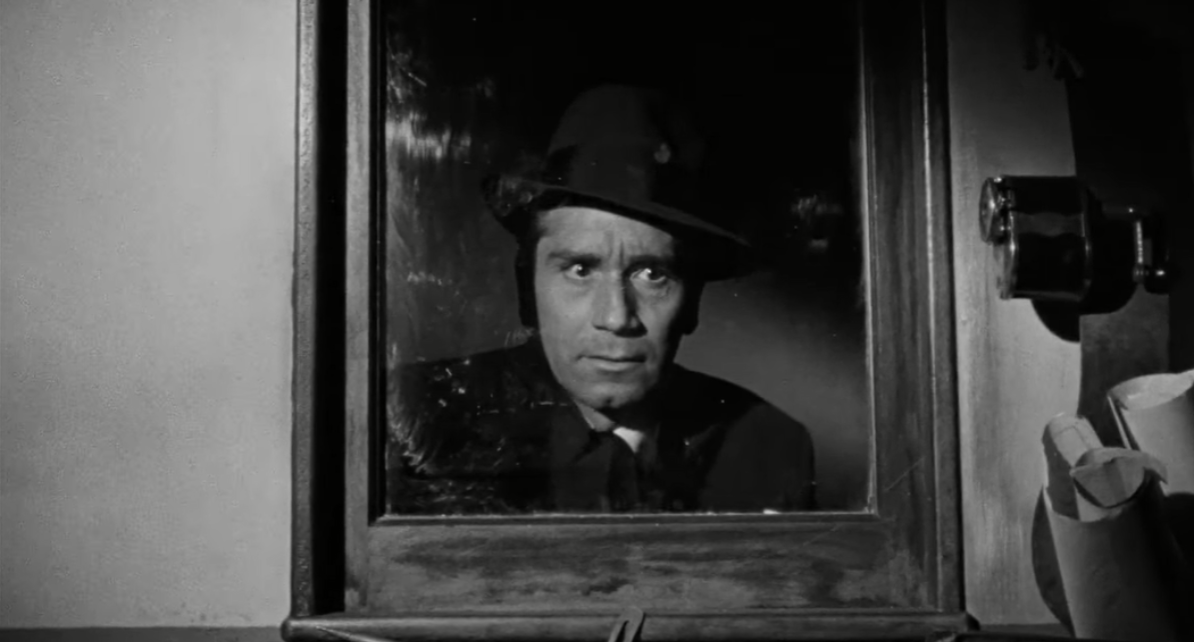
George Sherman · 93m · 35mm
A criminal tries to create an alibi for a murder, only to find himself on the lam on a fishing boat in San Francisco. A tender noir that, along with The Sleeping City, makes a good case for Richard Conte as a highly underrated noir lead. An exploration of morality and the criminal justice system, the film poses an ever-present question: how can our punitive society ever let one be redeemed?
Monday, February 5th 7:00PM
Against All Flags (1952)
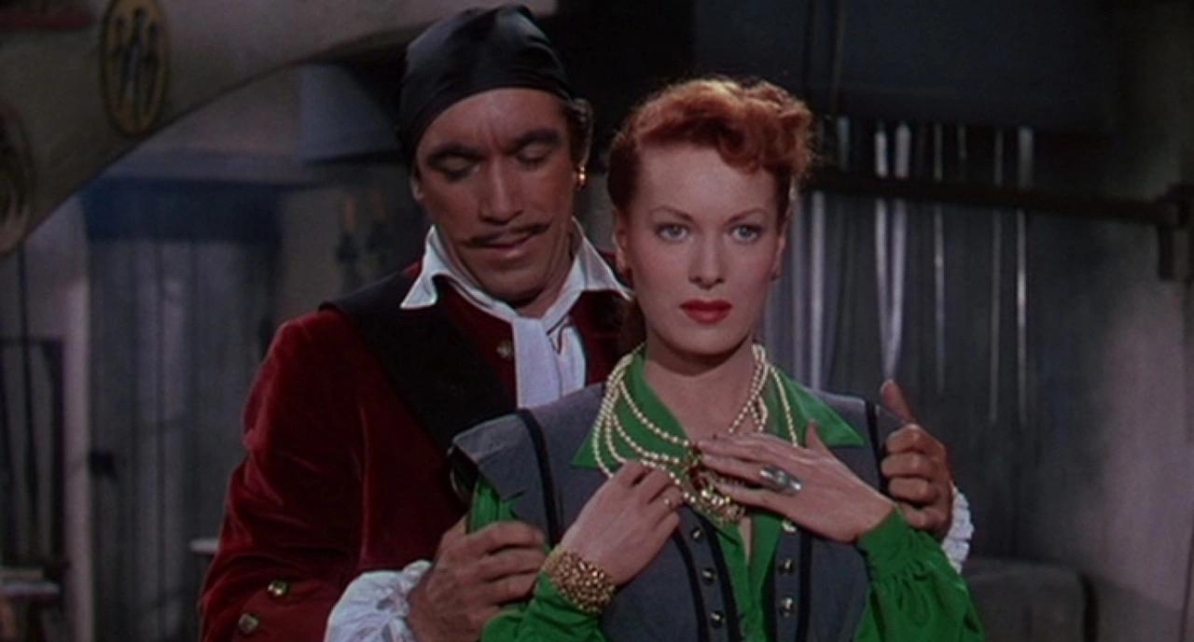
George Sherman · 84m · 35mm
Another genre picture with a premise one needs to see played out: Errol Flynn as a British officer infiltrating a pirate commune in 18th-century Madagascar. Things turn complicated (and sultry) as Flynn falls in love with pirate Spitfire Stevens (Maureen O’Hara). Beautiful colors and lovely special effects abound in this film, which also features uncredited directorial work by Douglas Sirk.
Monday, February 12th 7:00PM
Border River (1954)
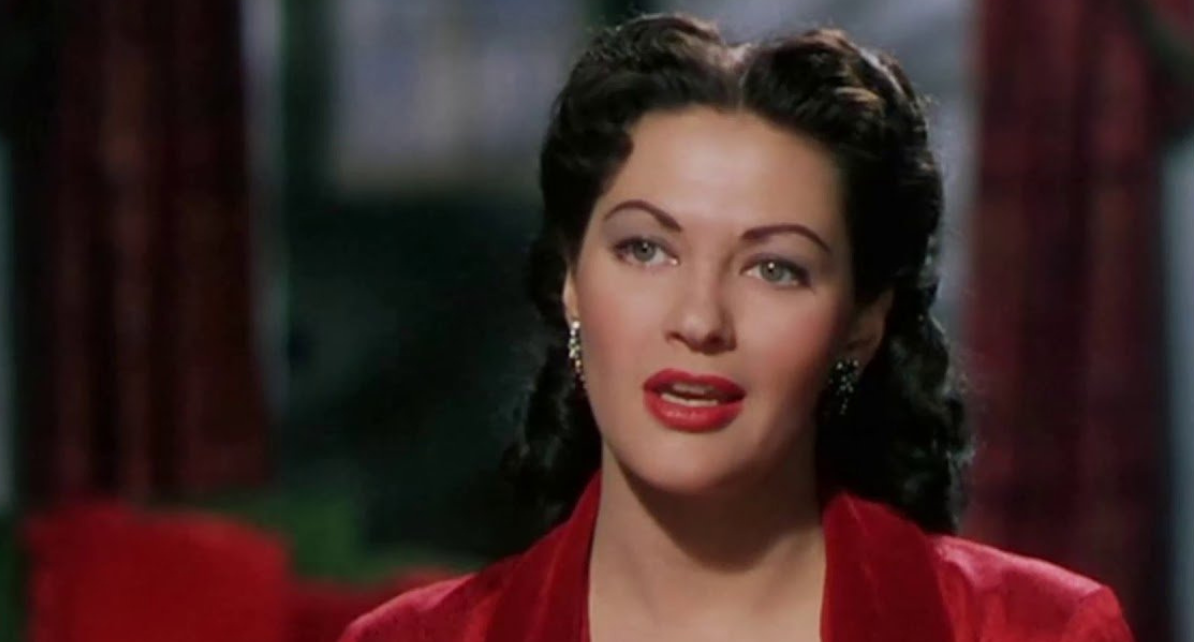
George Sherman · 80m · 35mm
During the Civil War, a Confederate officer (Joel McCrea) crosses the border into a Mexican free trade zone with stolen Union gold in order to buy guns. The film’s unique location and narrative stand in contrast to its depoliticized reduction of the Civil War to personal squabbling. In this sense, Border River is an unusual iteration on common Hollywood tropes.
Monday, February 19th 7:00PM
Hell Bent for Leather (1960)
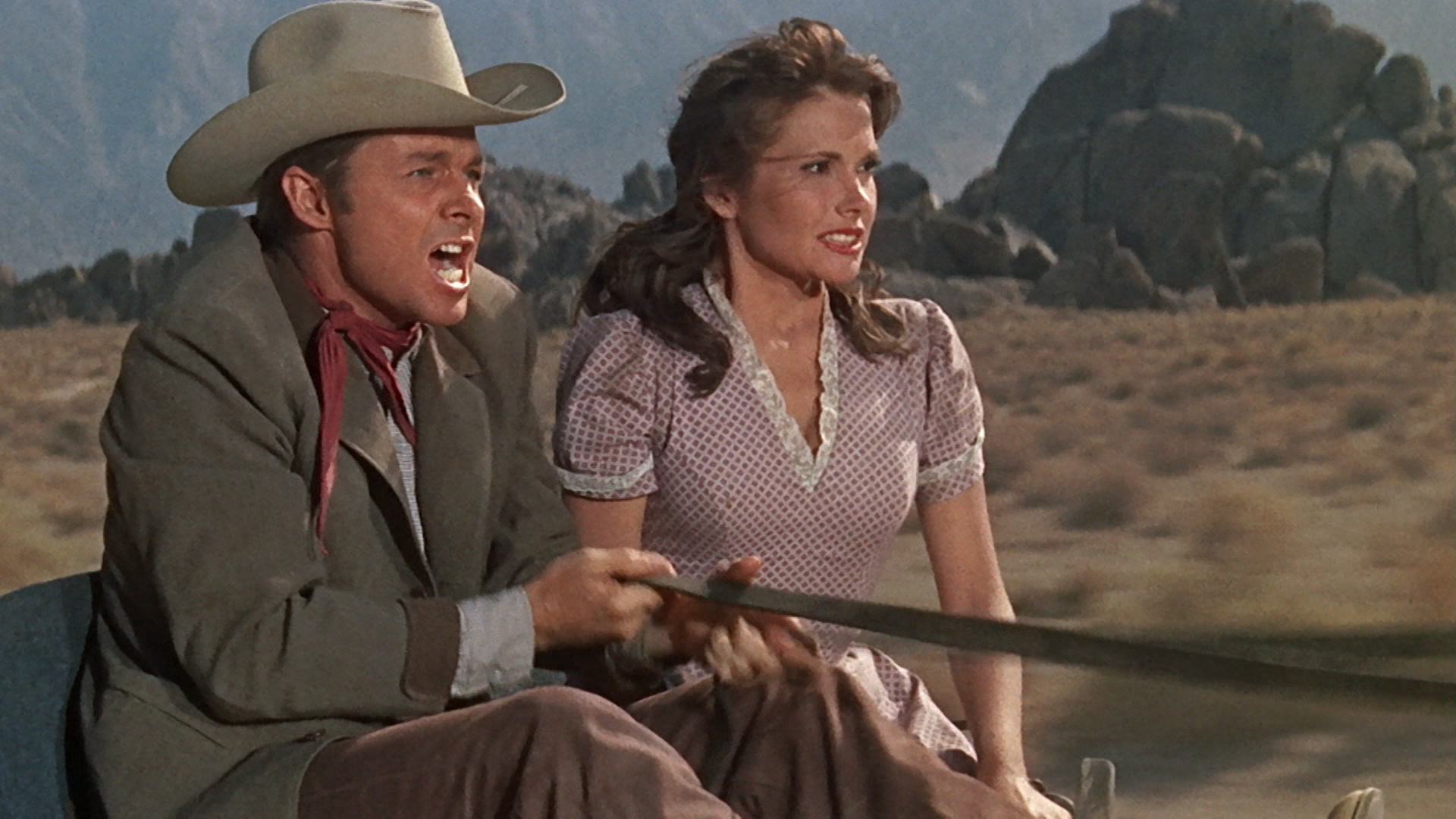
George Sherman · 82m · 35mm
Returning to Universal after a brief turn toward independent filmmaking, Sherman directs war-hero-turned-actor Audie Murphy as a horse trader who becomes confused for a notorious outlaw. Murphy is one of the most interesting actors in post-war Western pictures, and this rarely seen tale of mob mentality and injustice showcases the actor’s distinctiveness as well as Sherman’s no-frills artistry.






